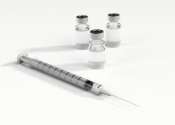Social media and the self-perpetuating cycle of risk for body image and eating disorders
With recent reports finding that 91% of U.K. and U.S. adolescents use social media and that over 50% check their accounts at least once per hour, researchers decided to have a look into the influence of so much social media ...









